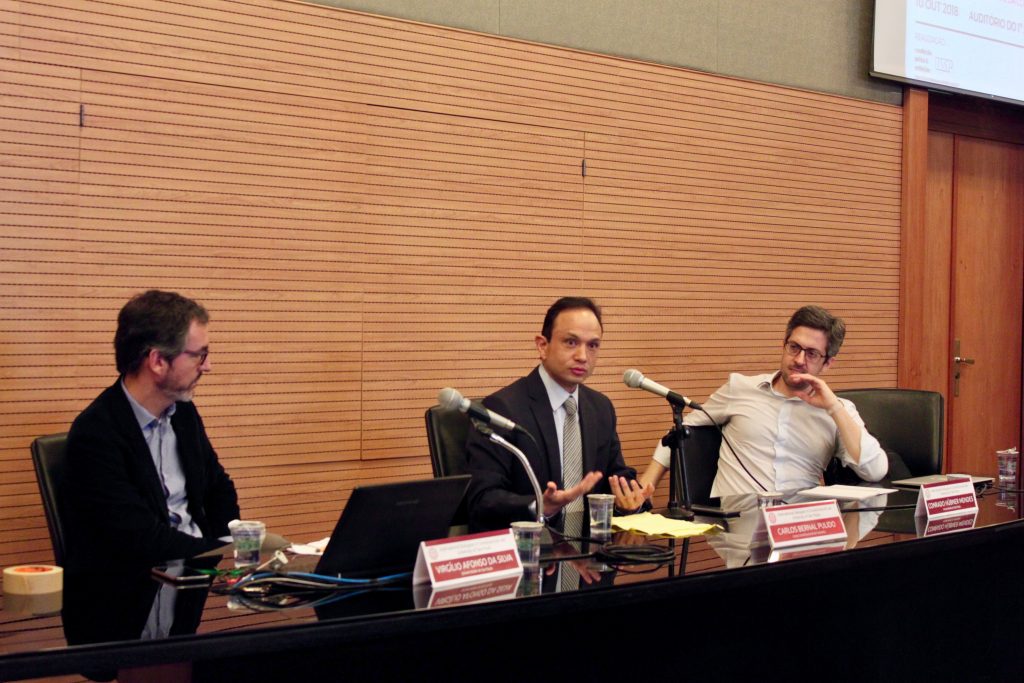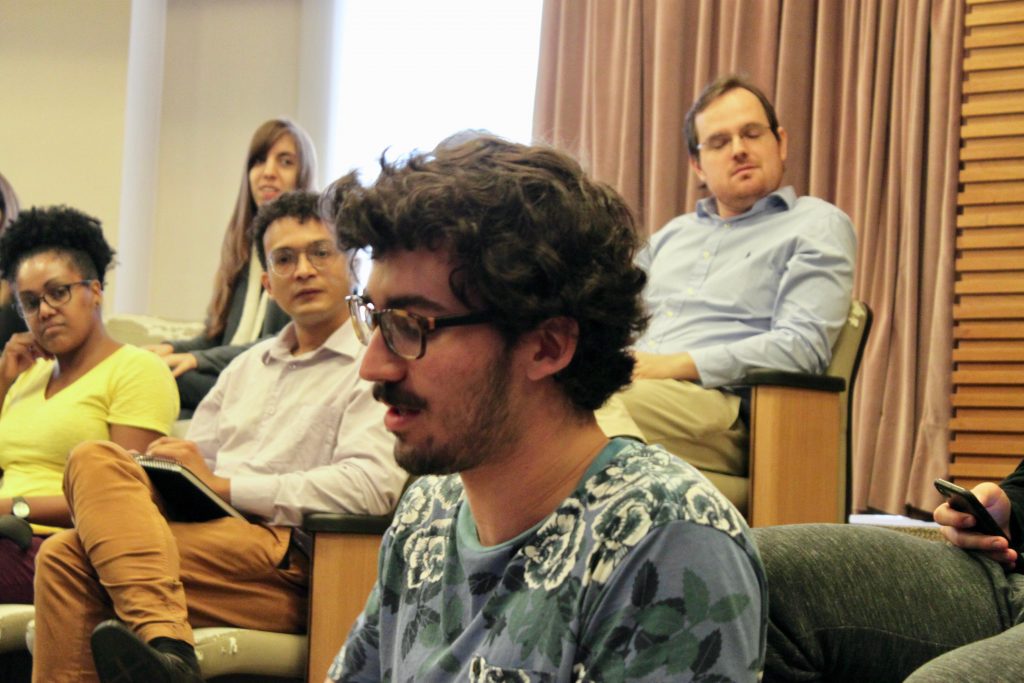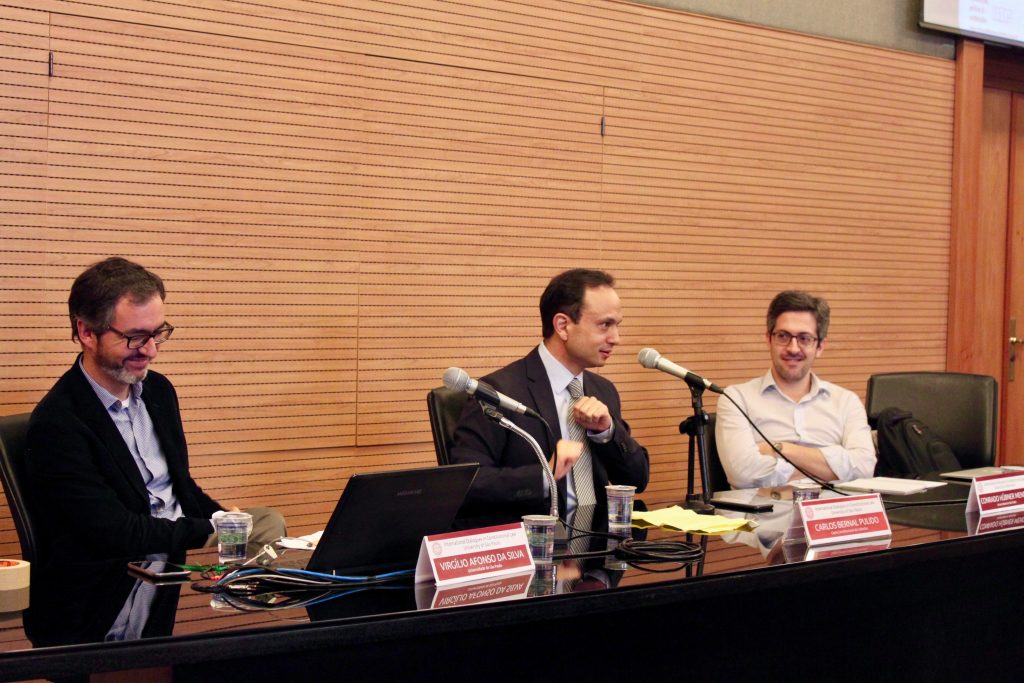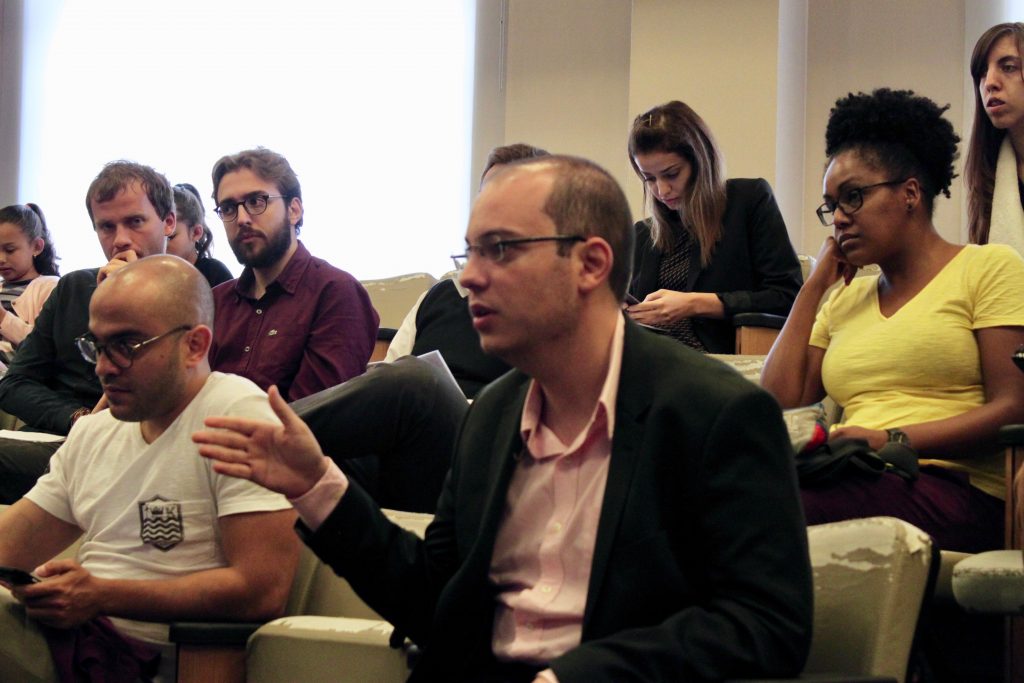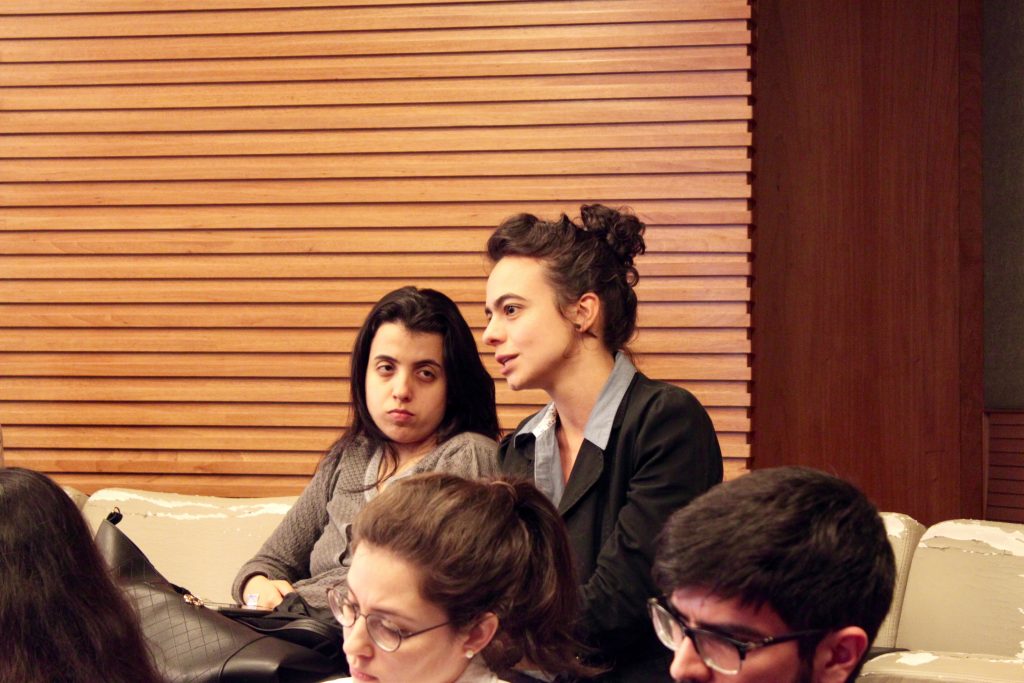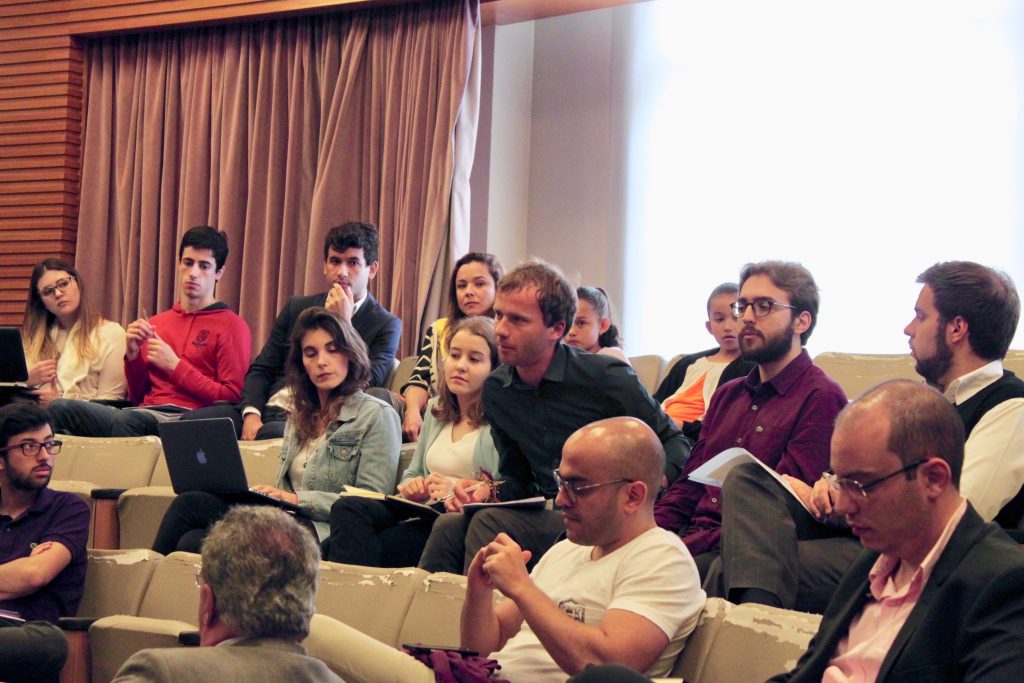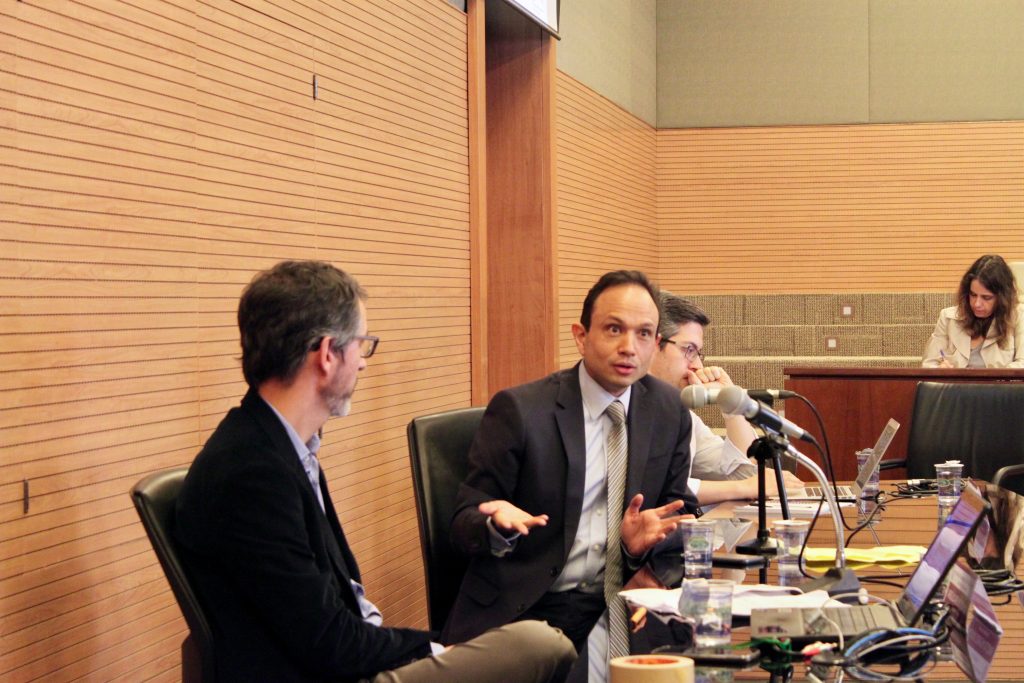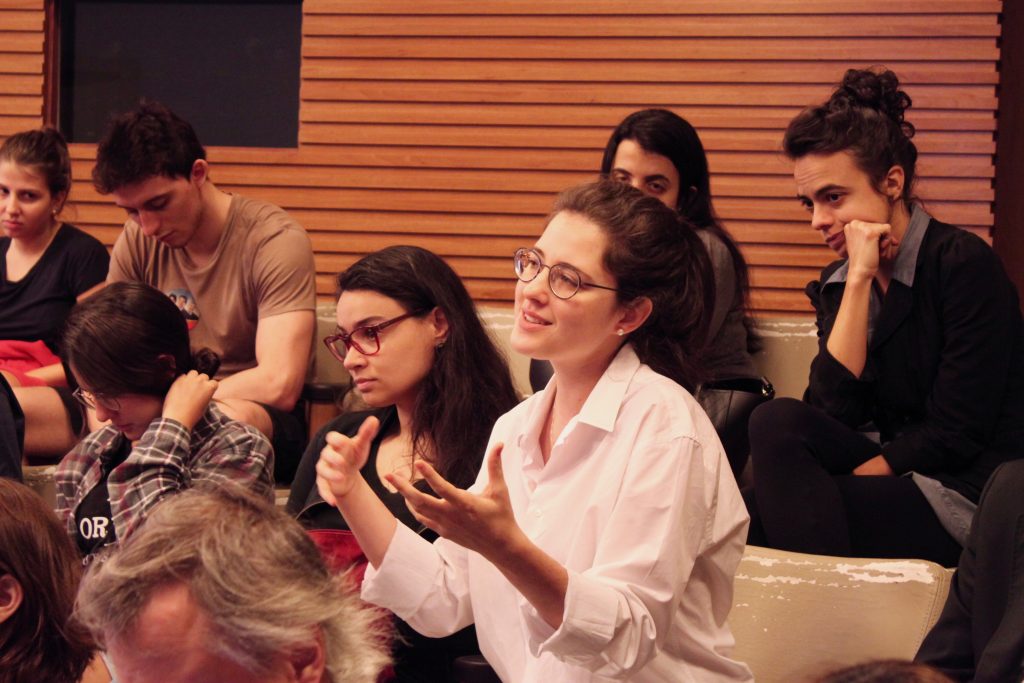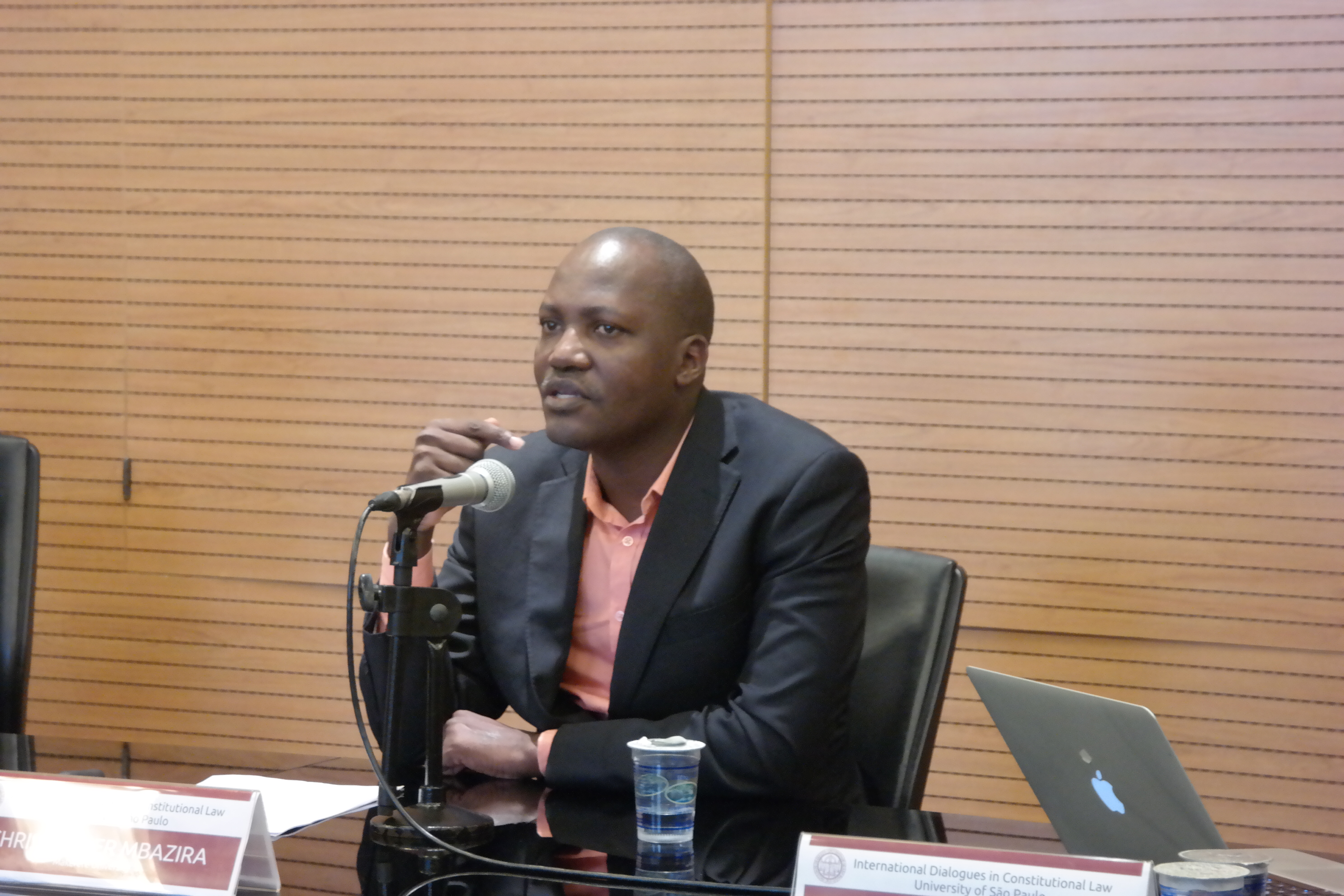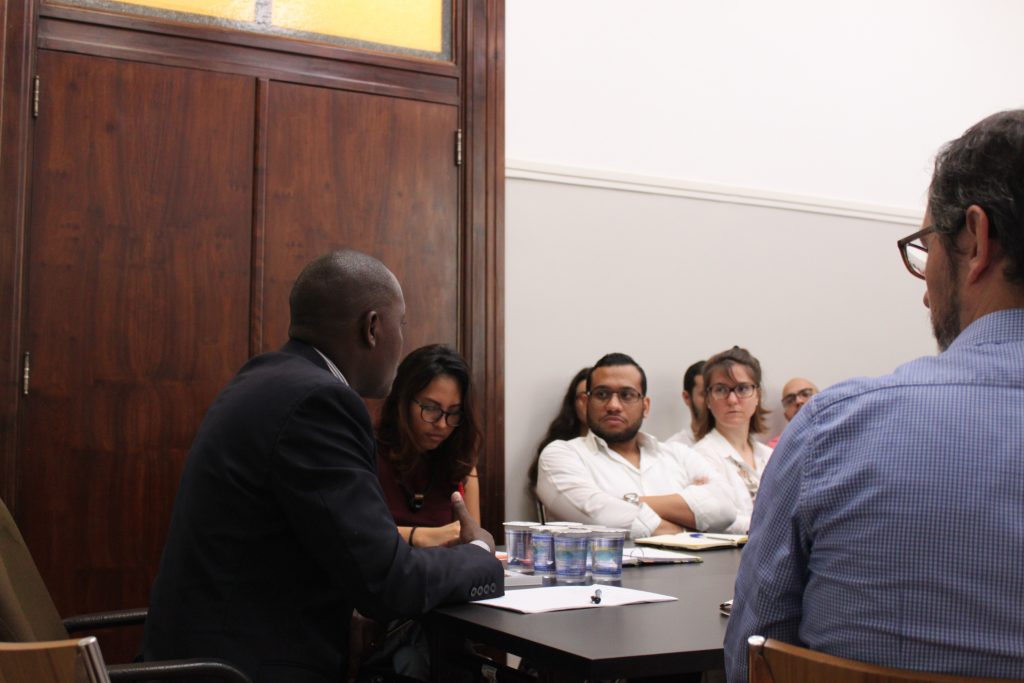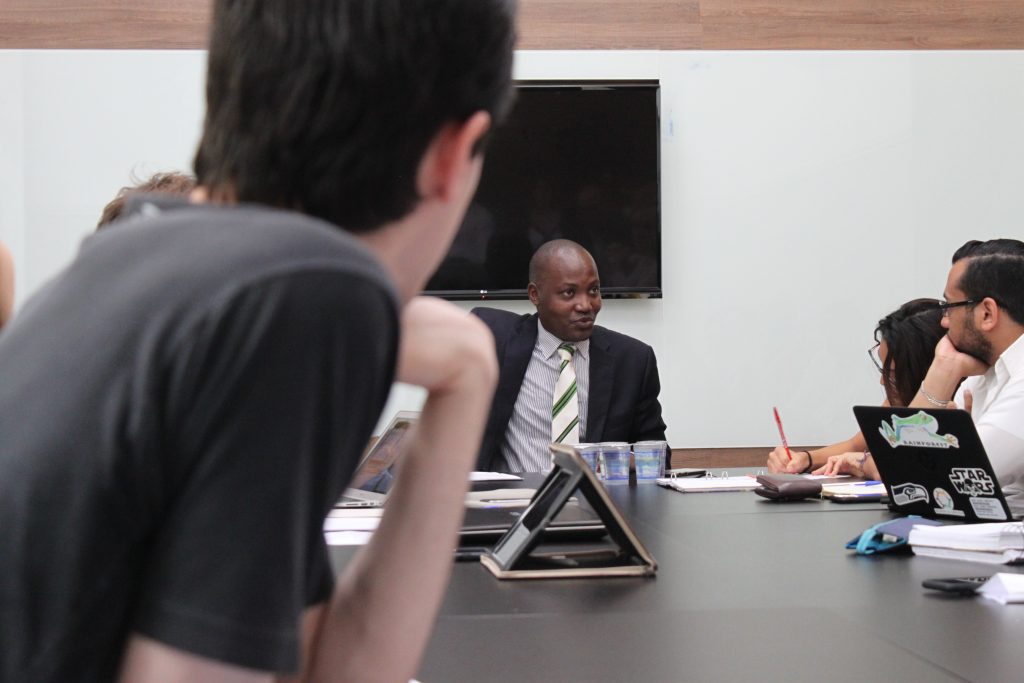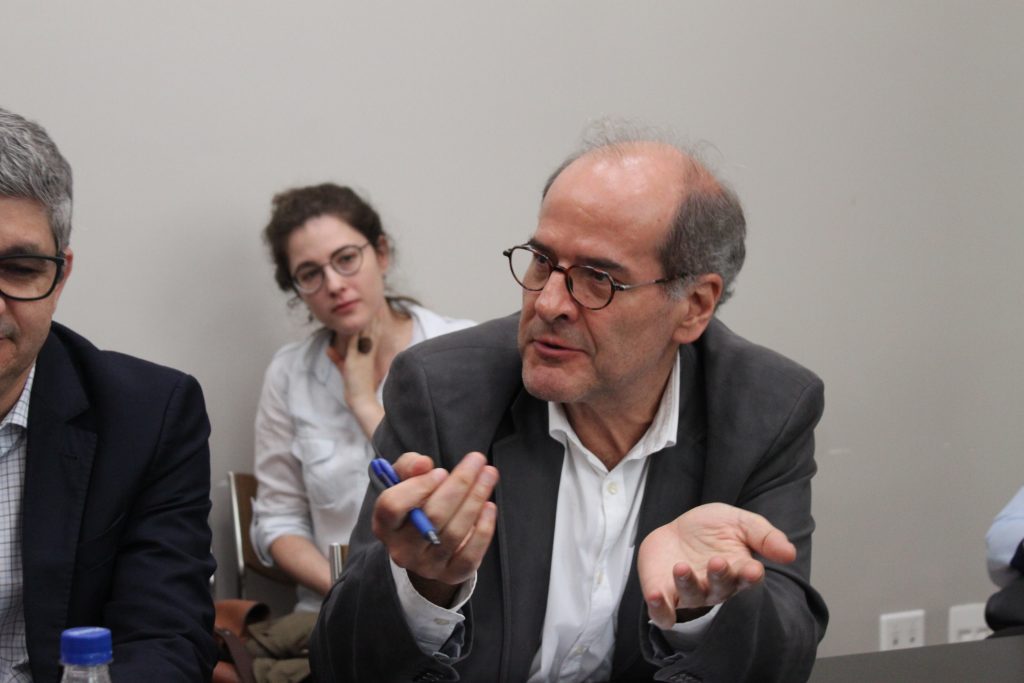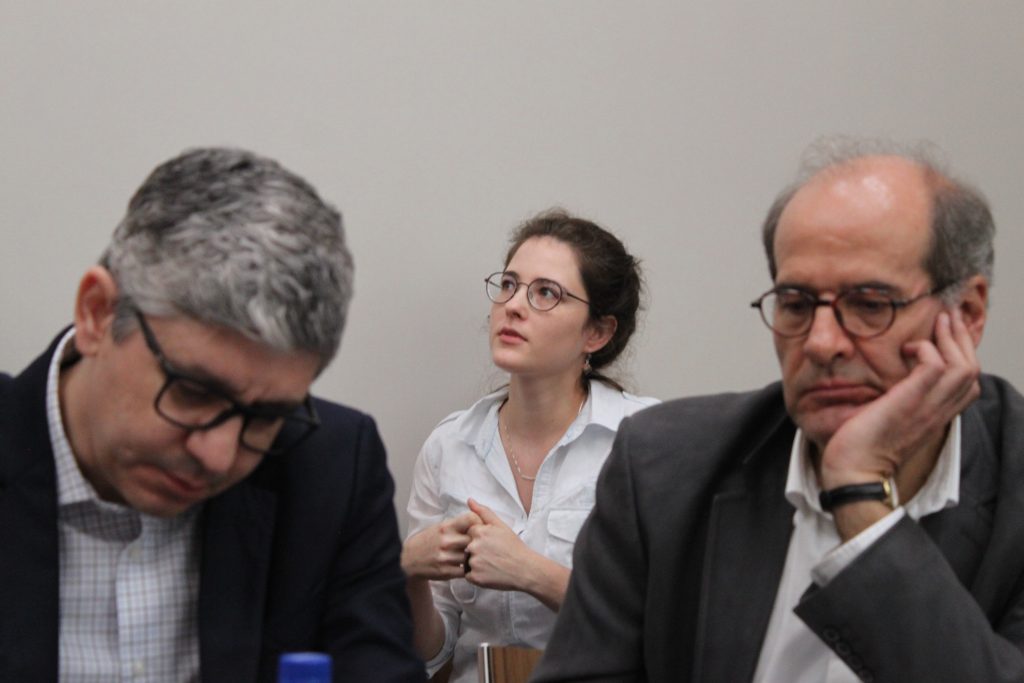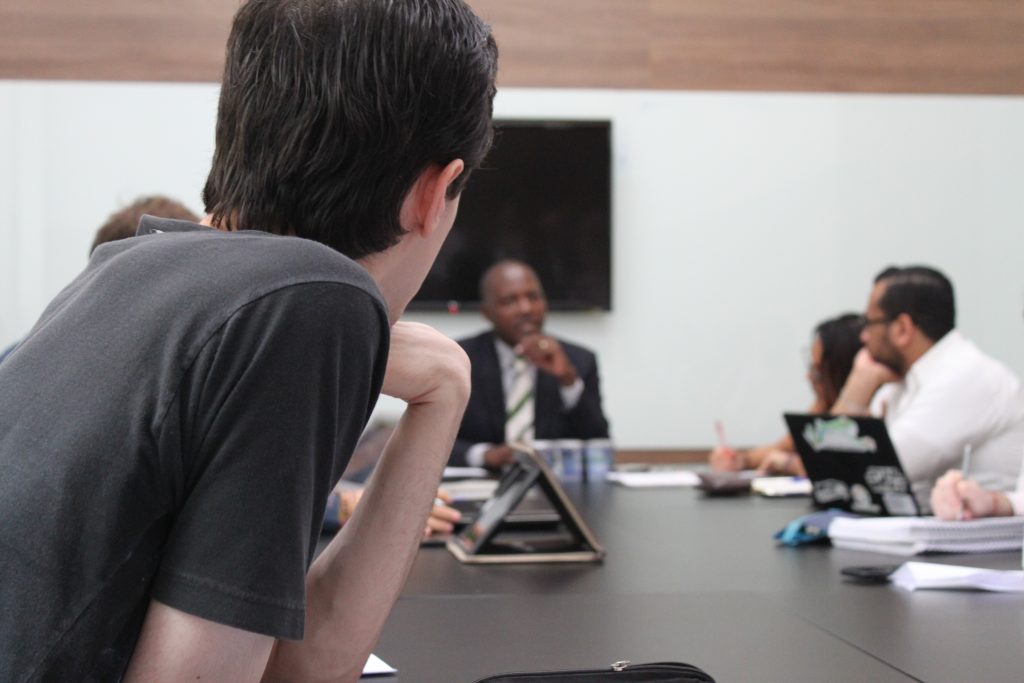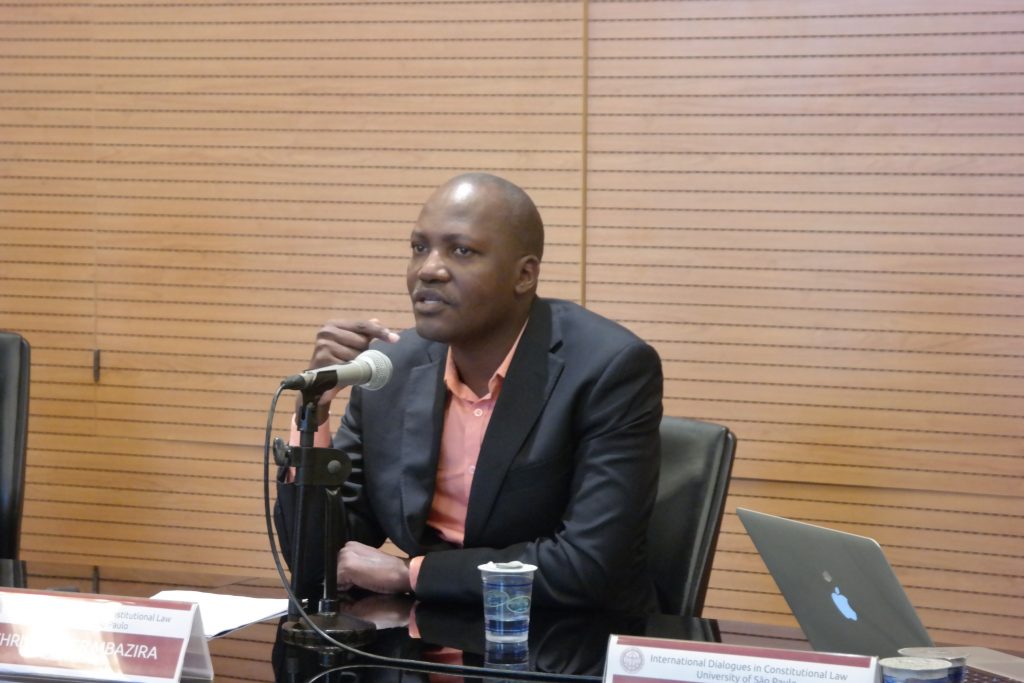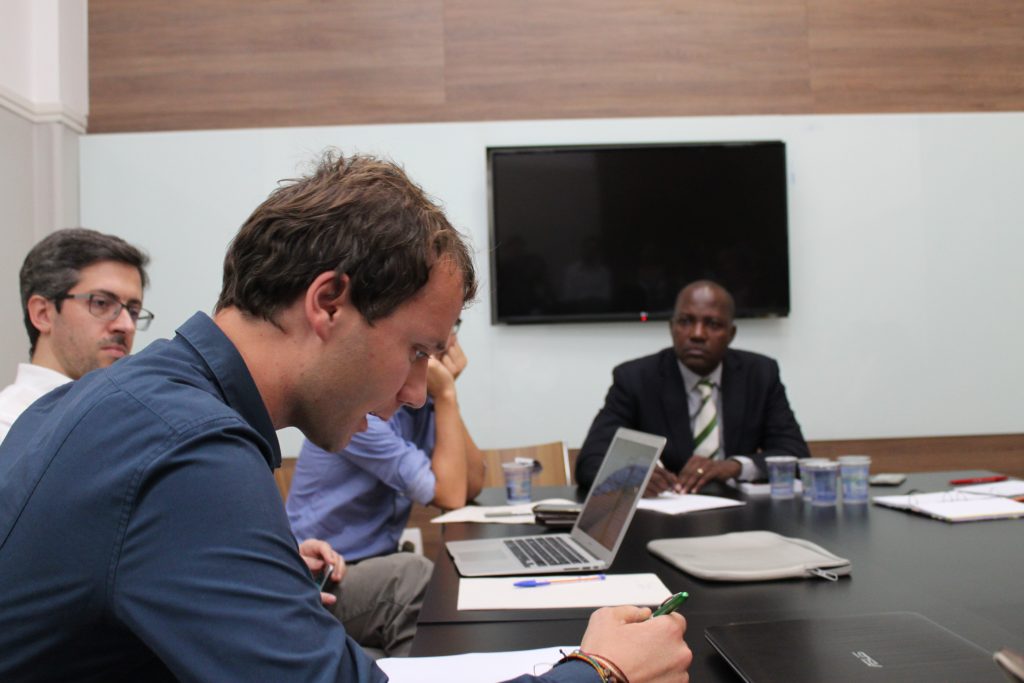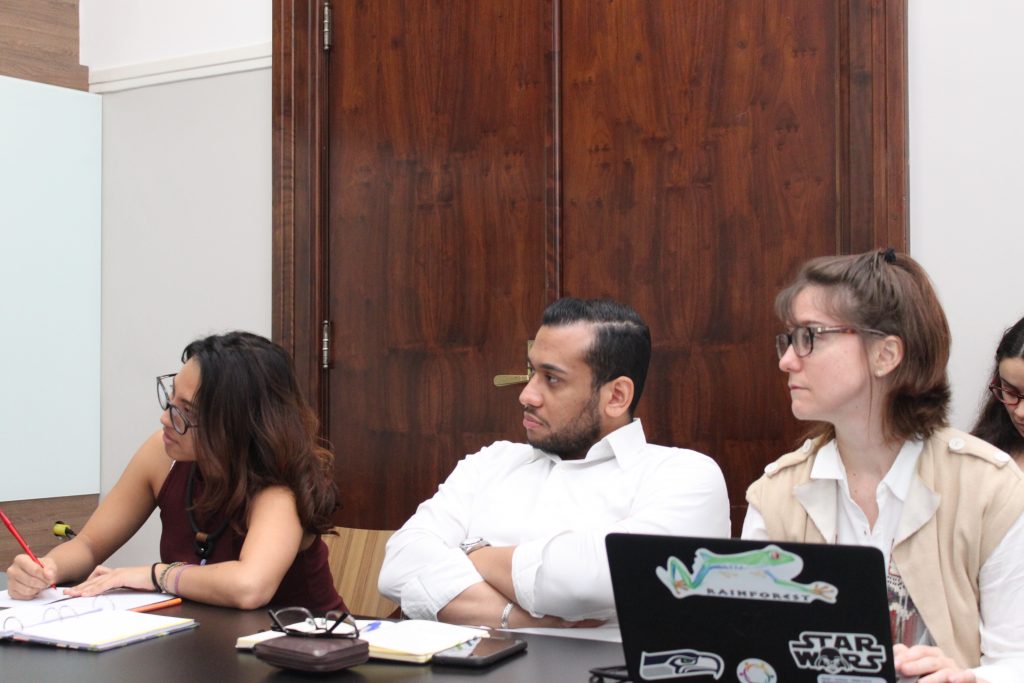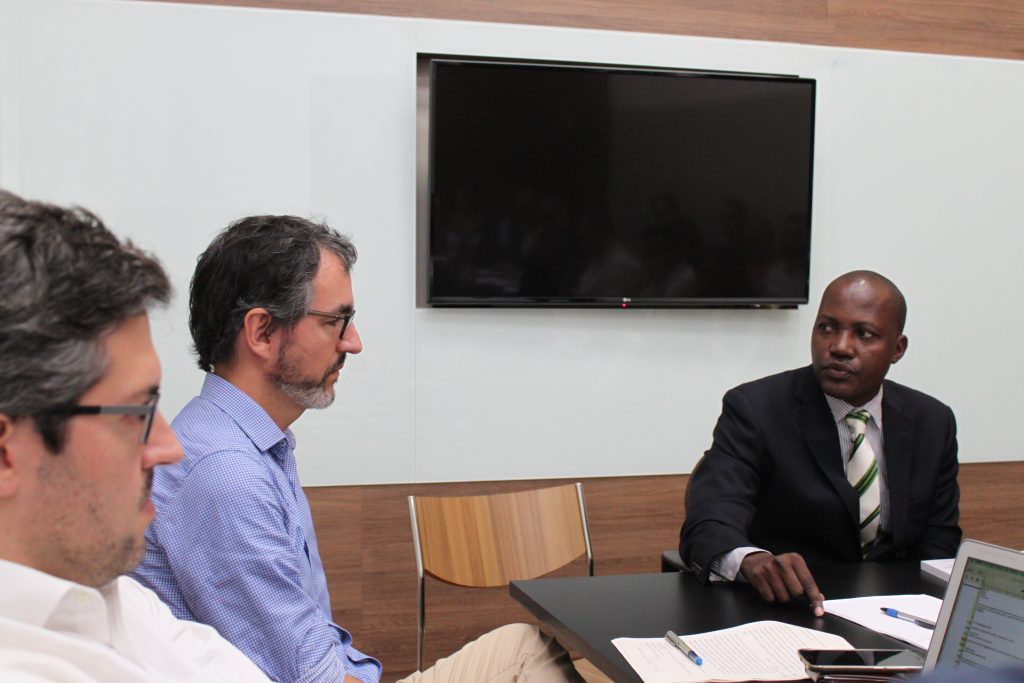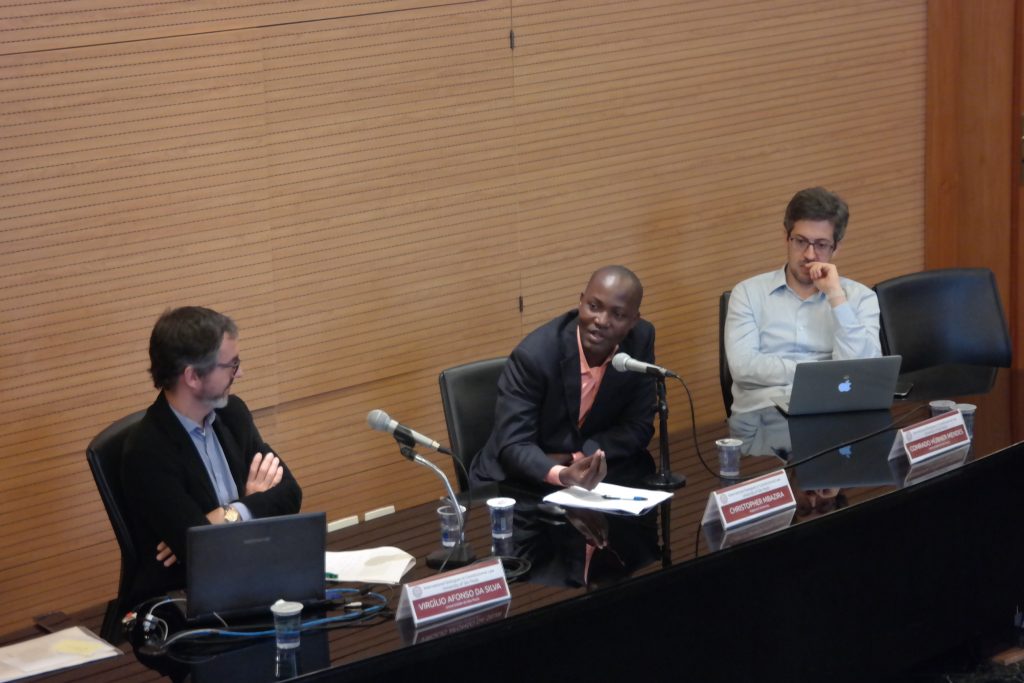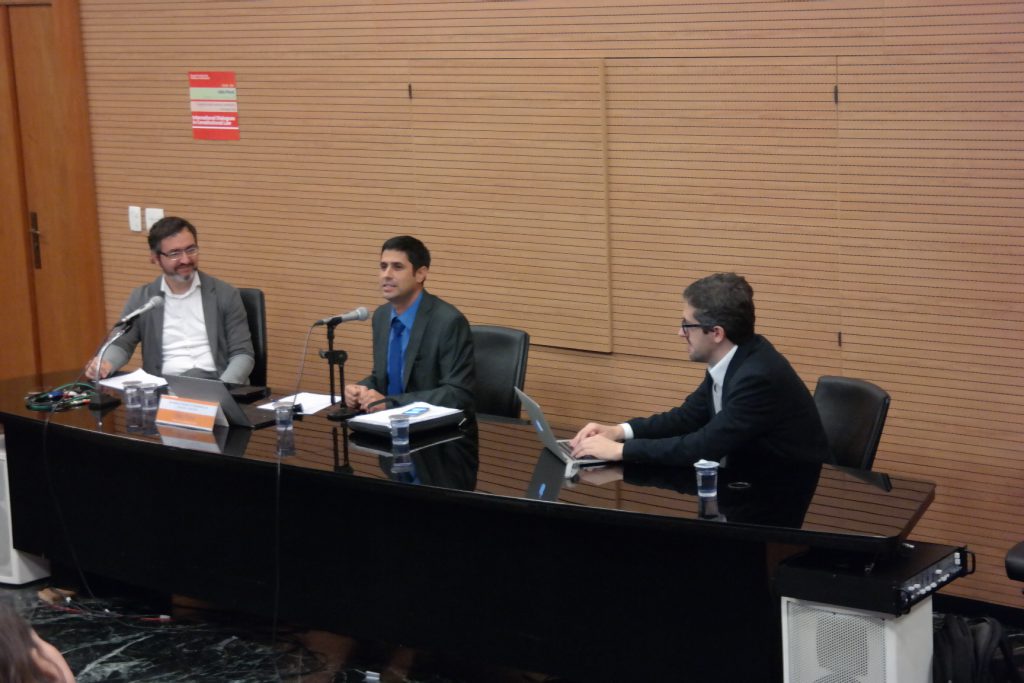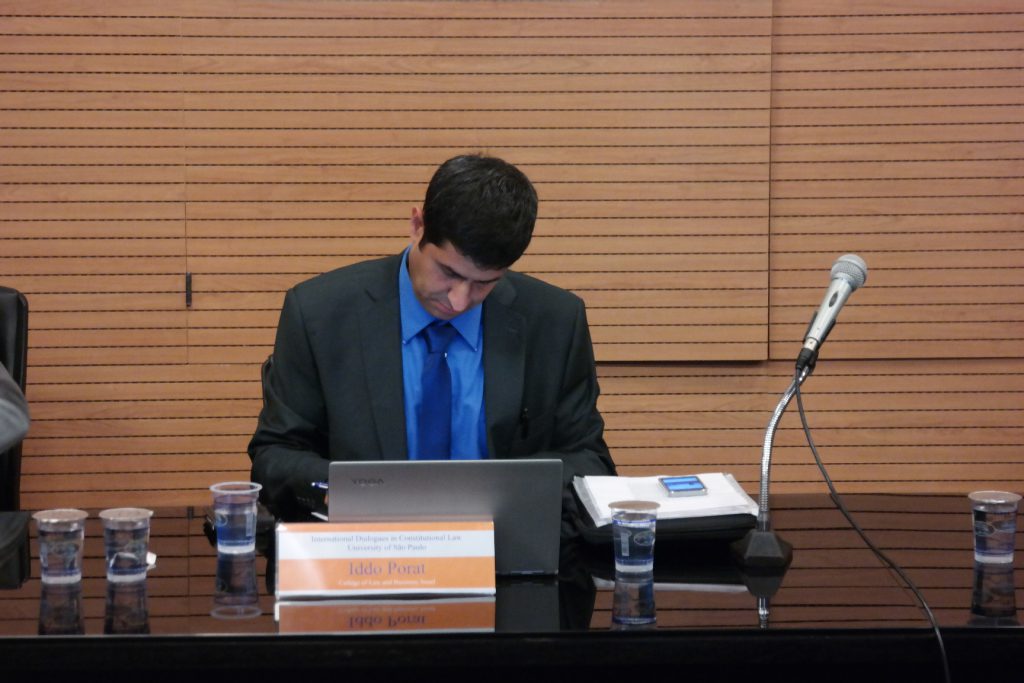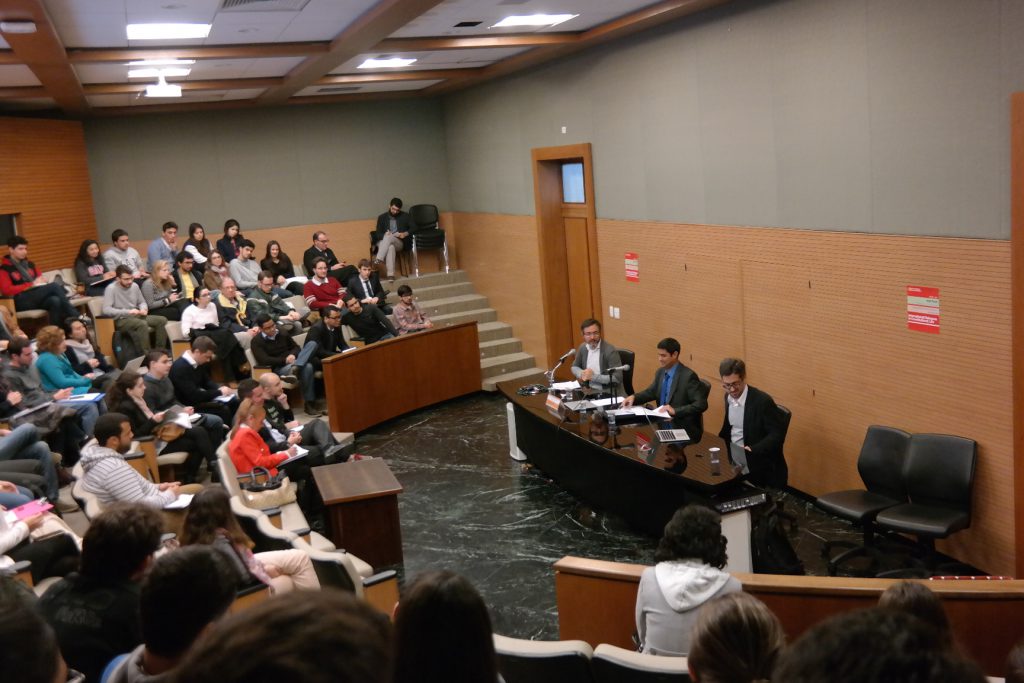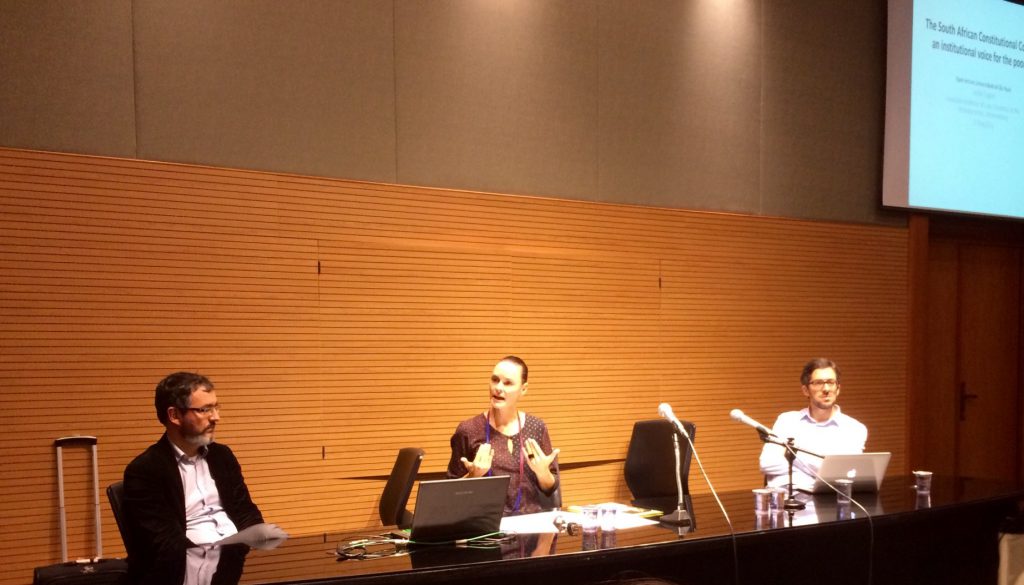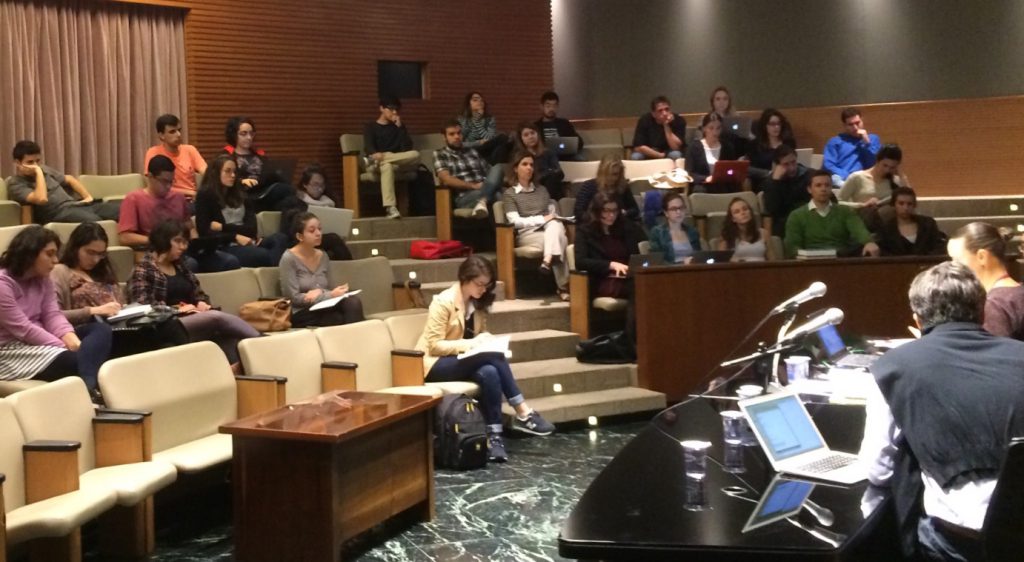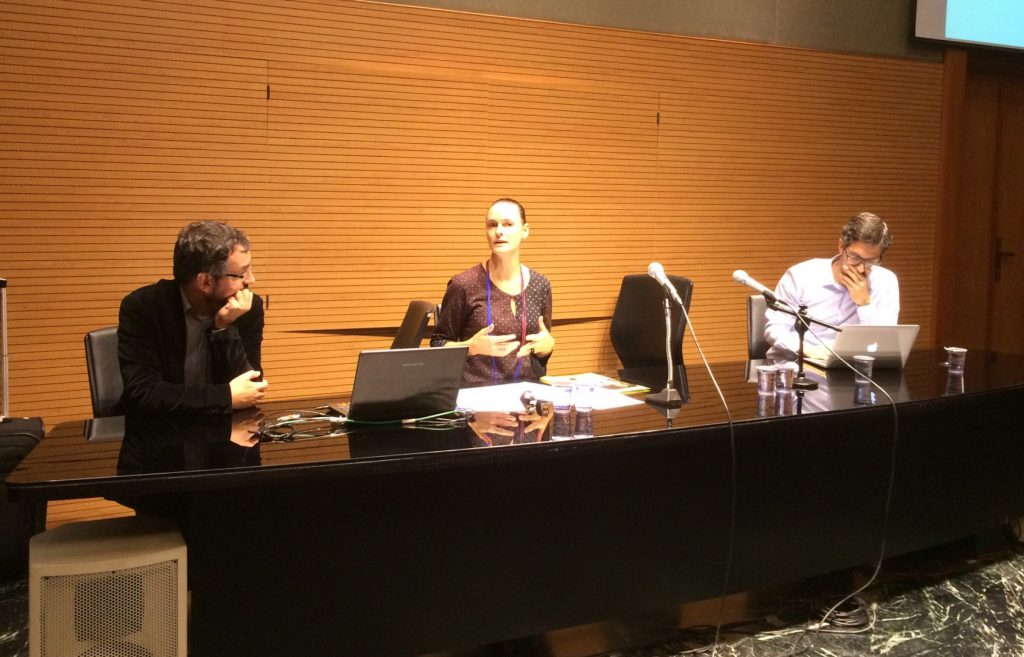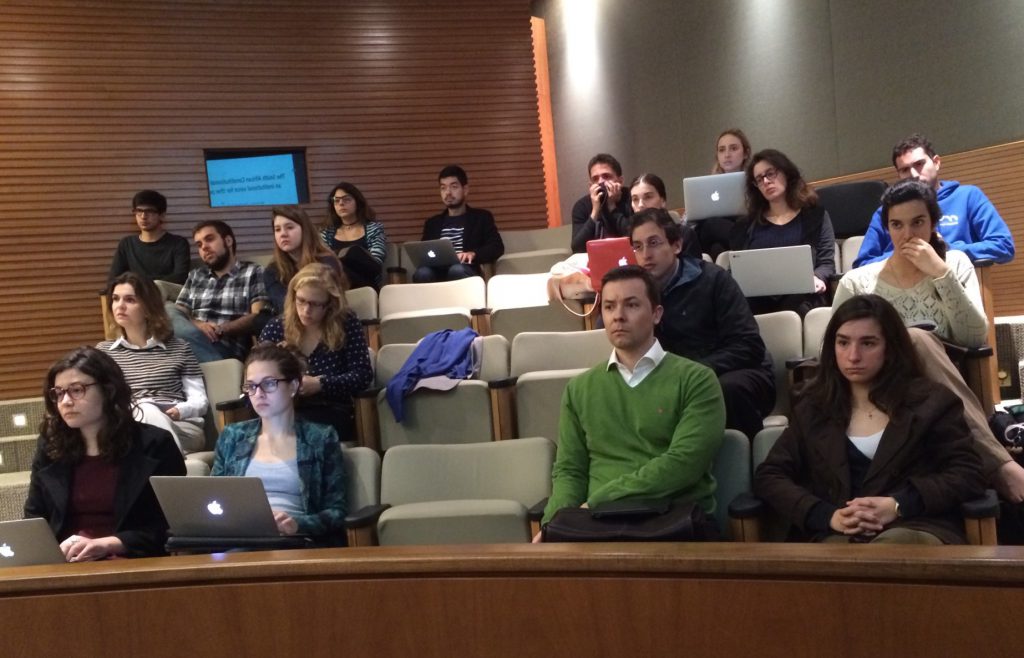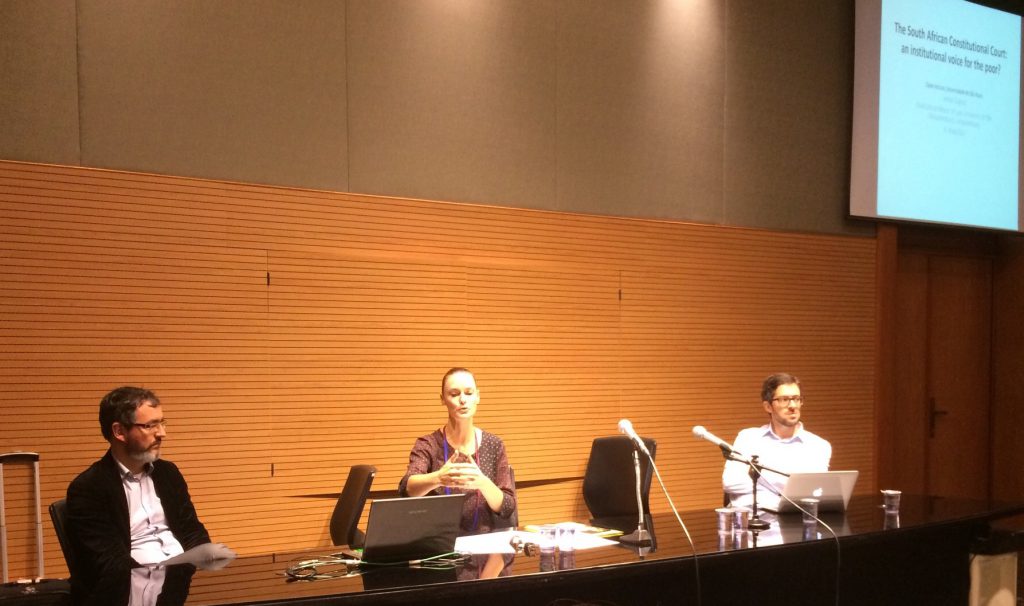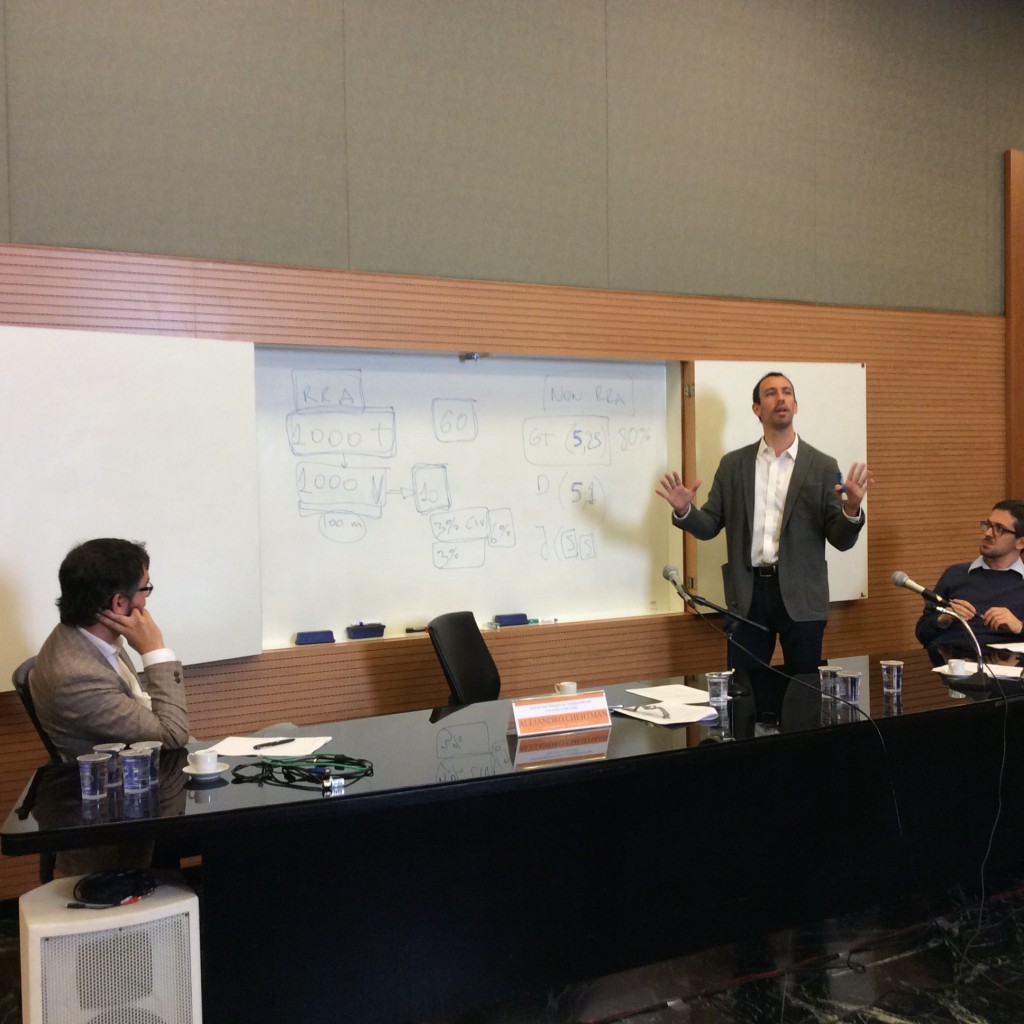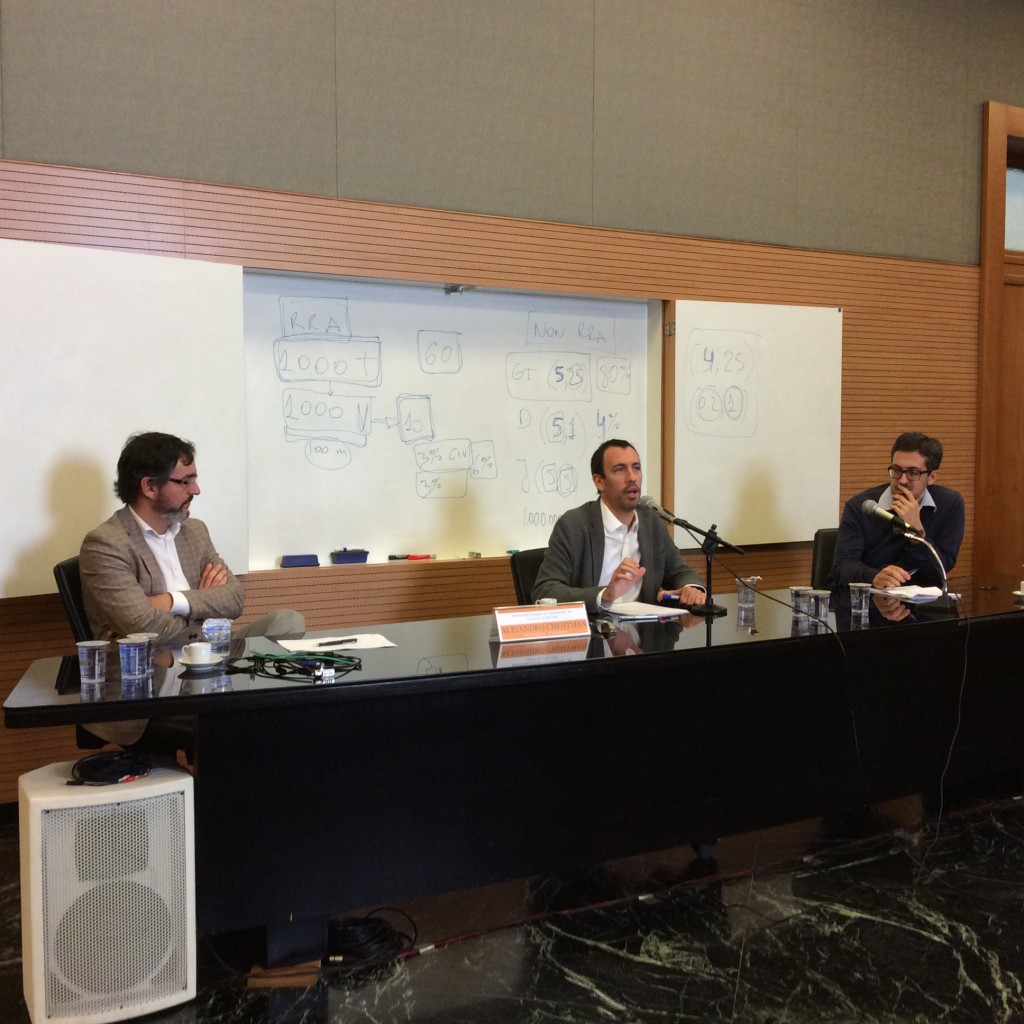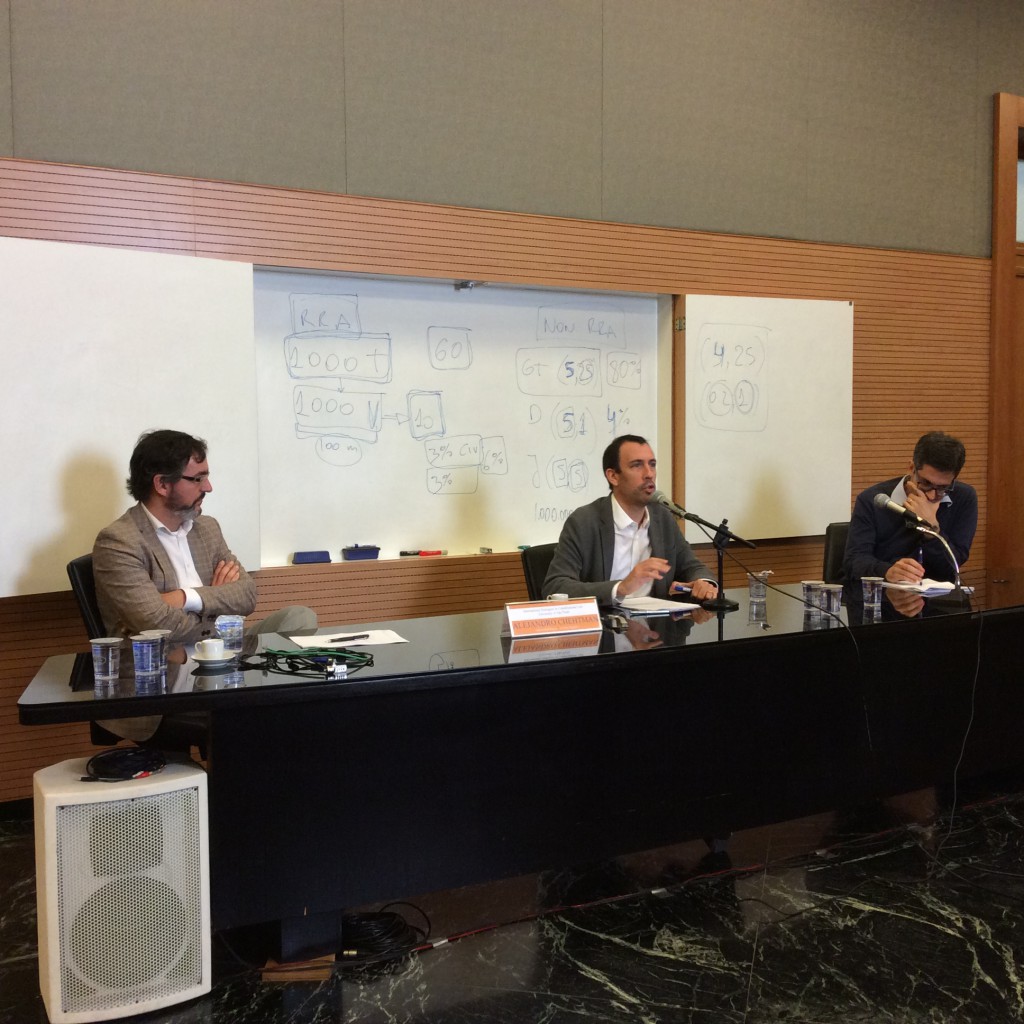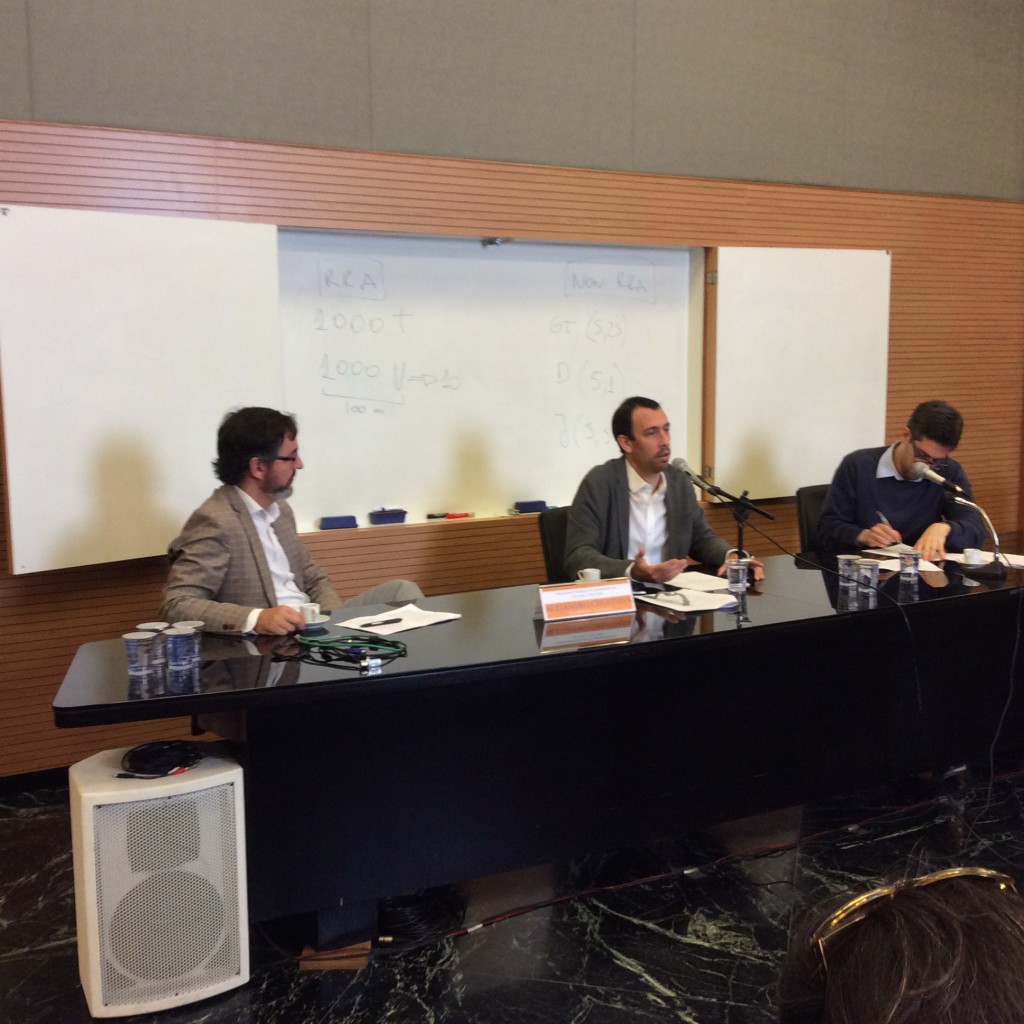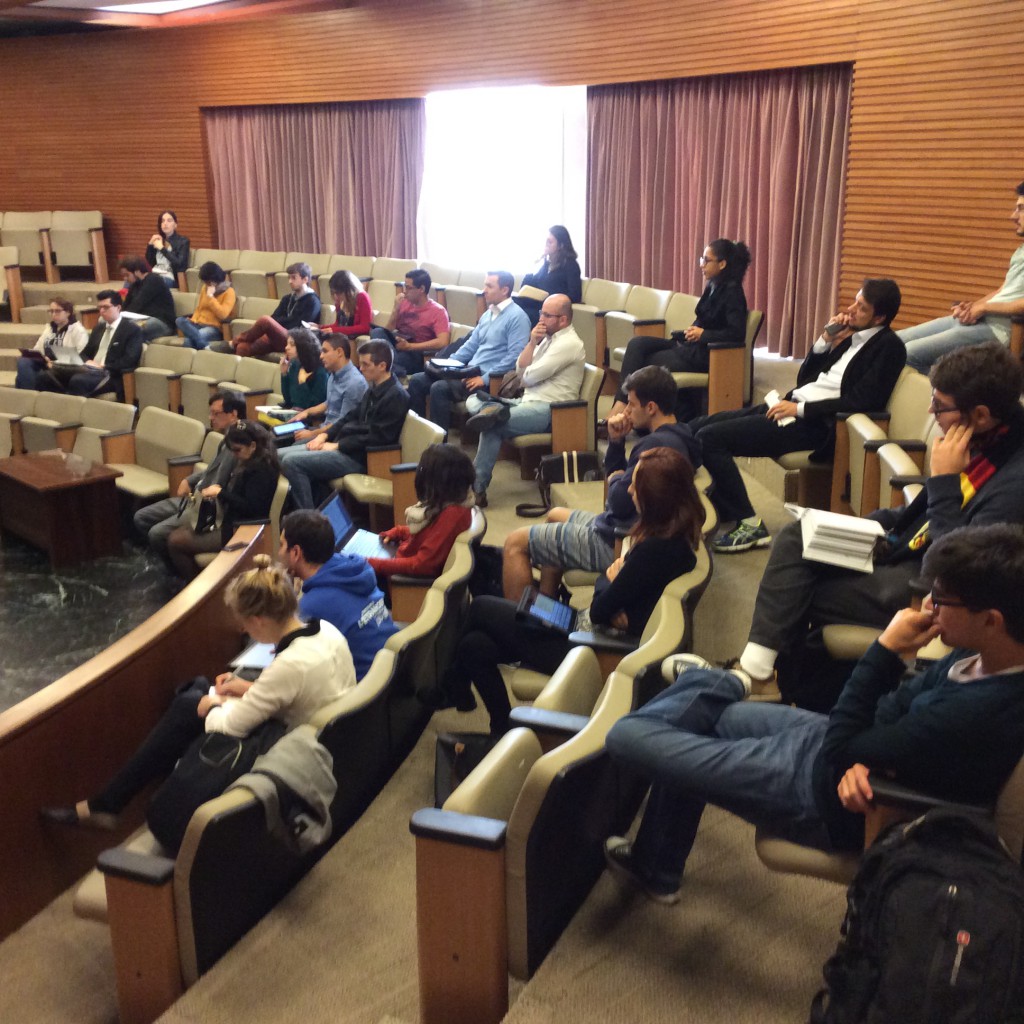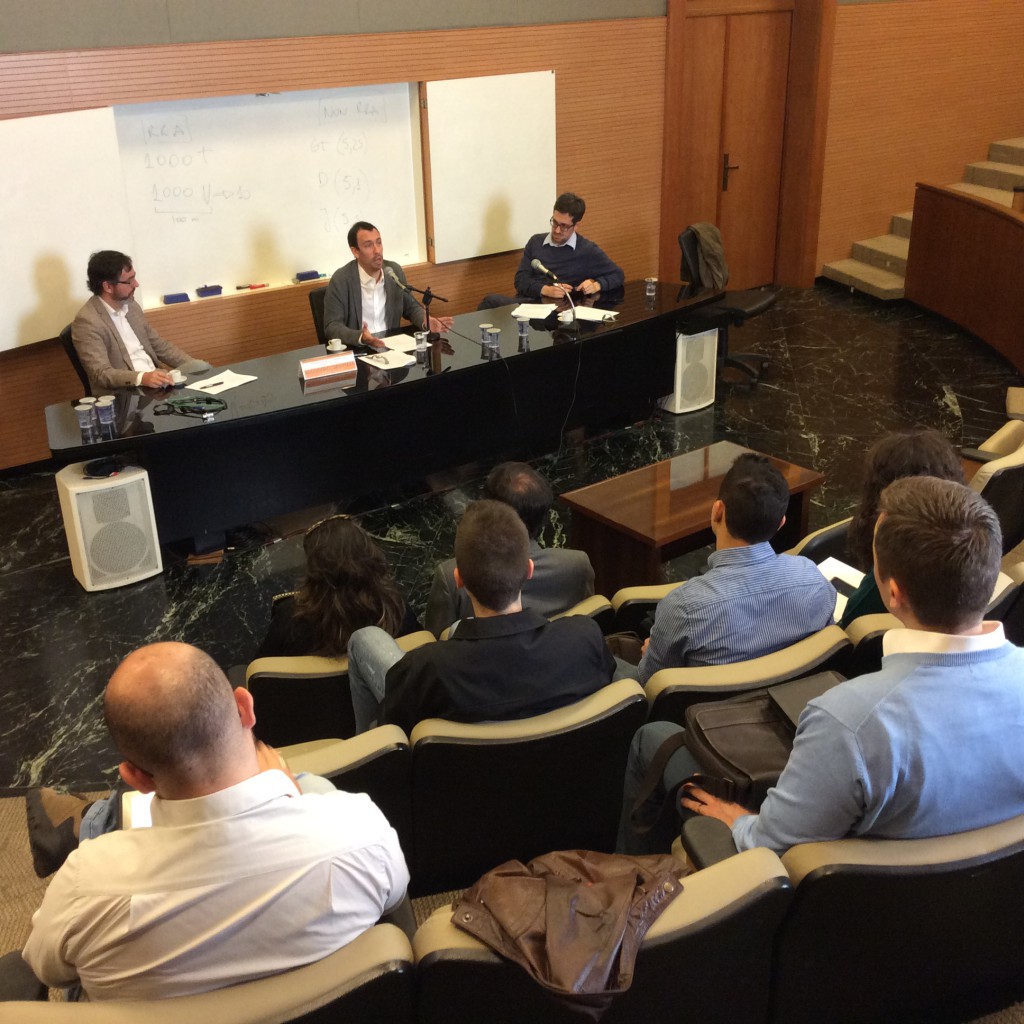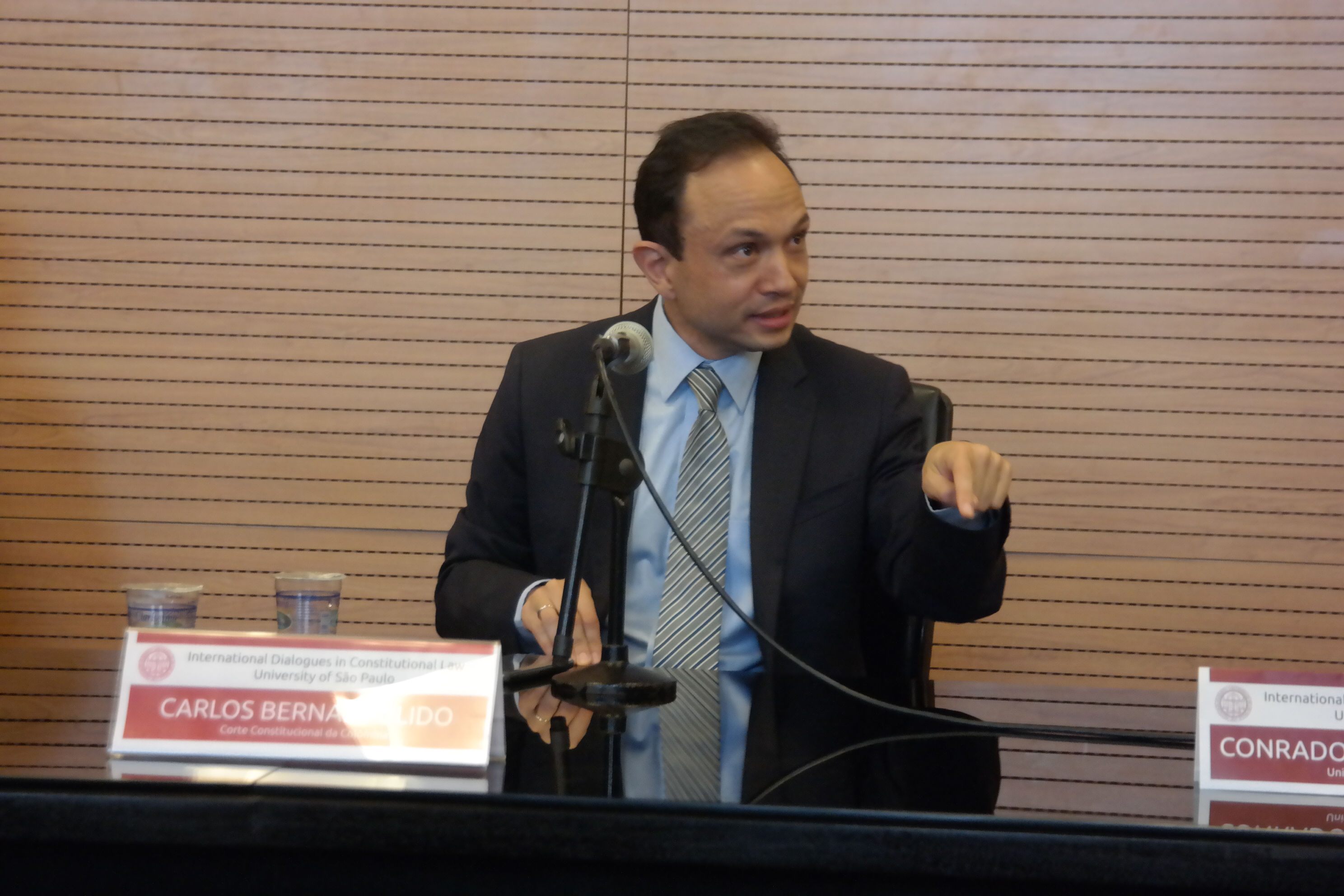
The International Dialogues in Constitutional Law event resumed its activities in the second semester of 2018 with the lecture “Is Transformative Constitutionalism an Illusion for the Global South?”, presented by the judge of the Colombian Constitutional Court Carlos Bernal Pulido. In this conference, Bernal presented the path for Courts’ transformative action to promote a representative, deliberative and participatory democracy.
According to Bernal, there is a conceptual uncertainty as to what “transformative constitutionalism” is, especially given the lack of clarity as to the objectives to be achieved. As a response, he identifies two purposes: reducing extreme poverty and reducing inequality. The performance of the Courts in the constitutional jurisdiction should, then, be guided by these principles.
Substantially, Bernal points out that non-interventional Courts do not help in achieving these goals. On the other hand, interventionist Courts are more likely to be discredited due to the lack of results, to the creation of perverse incentives and to the destruction of wealth due to the prioritization of the interest of small groups in detriment of common interests.
Thus, the path defended by the judge is intermediary: an active Court in constitutional jurisdiction, but guided by proportional and deliberative constitutionalism. In this sense, the judicial performance should favour the dialogue between those involved and consider the financial consequences of the cause, avoiding the attribution of unenforceable charges.
Report by Ana Clara Pamplona, translated by Natalia Langenegger. Photos by Artur Pericles Lima Monteiro.

